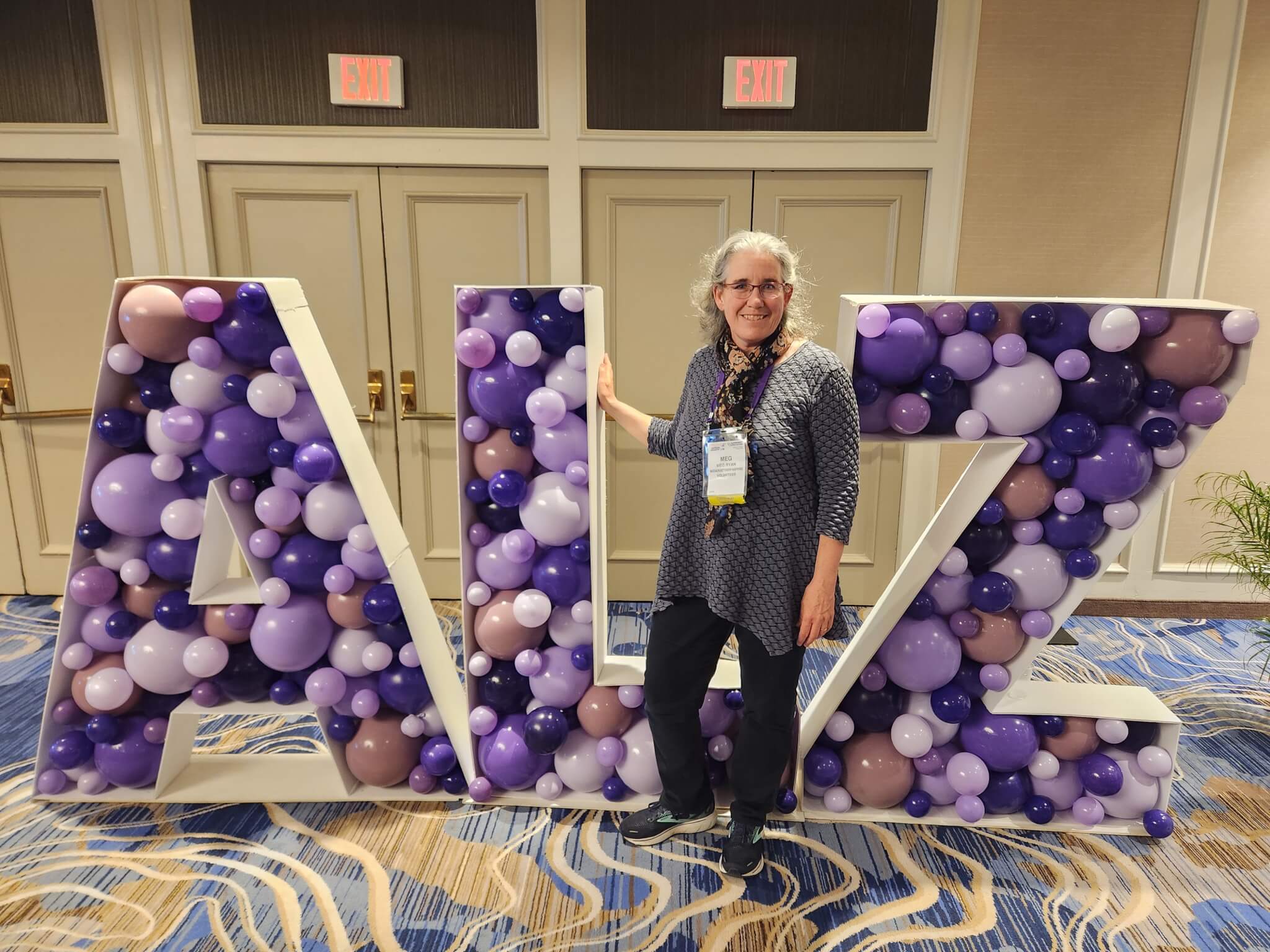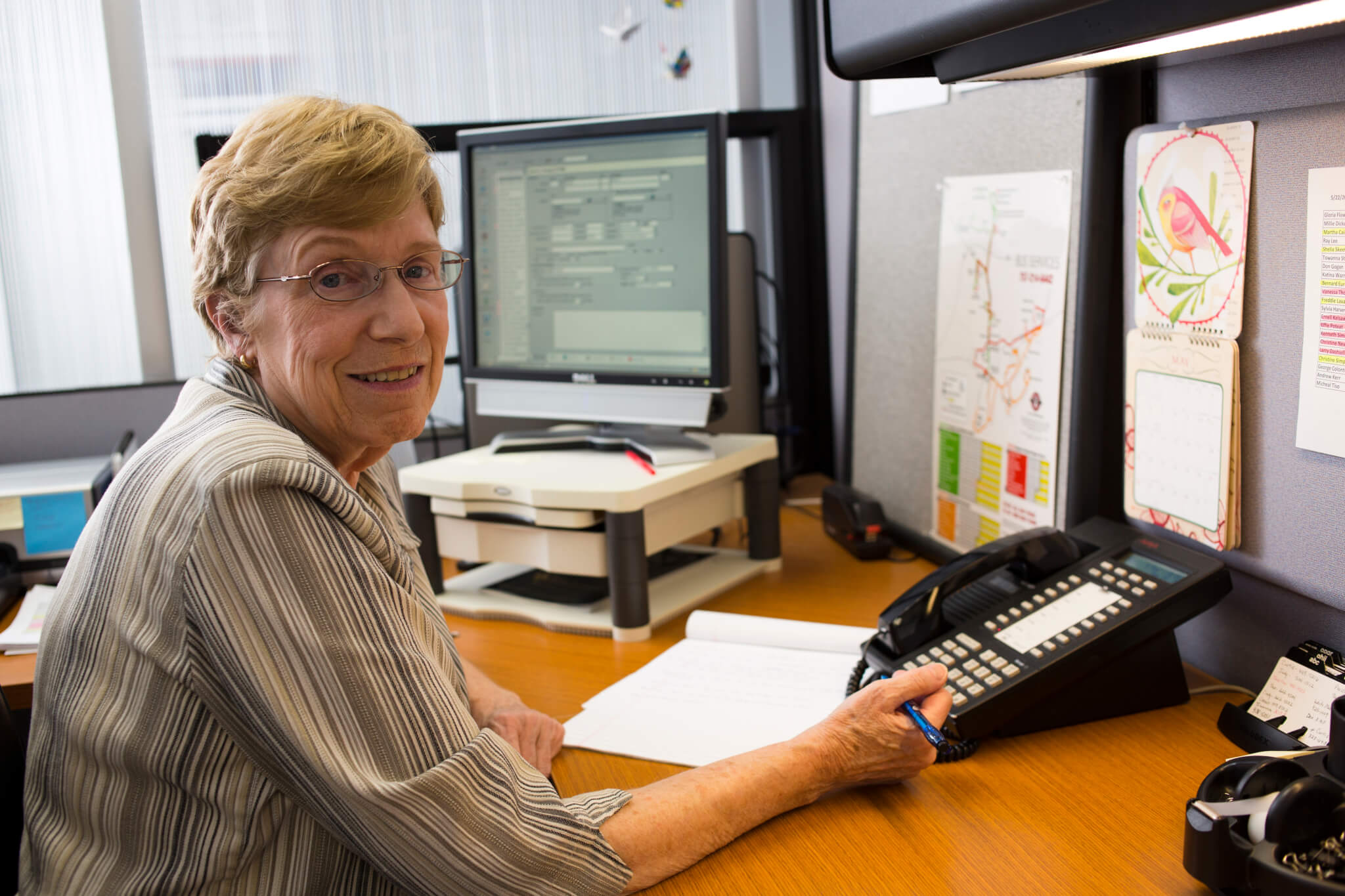The Alzheimer’s Association National Community Leaders Summit 2024 took place in New Orleans in late January this year. I was honored to be invited to the summit, one of only 15 people invited from Massachusetts and New Hampshire, and one of only two people from Western Massachusetts! Being part of this two-and-a-half-day summit was deeply inspiring. The power of 1,300 people wearing purple (the color of Alzheimer’s disease) together in the same room, all equally passionate about working to advance research and education about dementia, cannot be overstated! This yearly summit convenes Alzheimer’s Association volunteers and staff from all over the United States to experience and be inspired by the shared vision of a world without Alzheimer’s and all other dementias. The summit helps volunteers and staff develop a deeper understanding of the Association’s leadership role in Alzheimer’s care, support, advocacy, and research and helps them to be motivated to play an even bigger role in the work to end dementia.
Experts and national and regional Alzheimer’s Association staff attended, but the focus was on the many, many volunteers who work with the Alzheimer’s Association. Volunteering is extremely personal for most attendees. Most had lost a partner, parent, or grandparent to dementia—too often more than one—or are current caregivers for a loved one living with dementia, or are themselves living with early stage dementia.
Workshops emphasized strengthening community connections, especially by telling the “why” of one’s involvement. One speaker was a retired educator from Georgia who had been her mother’s caregiver in the 1990s. She described her mother as the mom everyone loved, so it felt particularly devastating when her mother was diagnosed with Alzheimer’s disease in 1990. She talked about turning her anger about the lack of information about dementia at that time into action to improve the situation for others. By talking about dementia, we can reduce the stigma of living with dementia. Hers was just one of many stories, often heartbreaking, about how devastating dementia can be. One speaker said, “this disease has a path of destruction more physically and emotionally devastating than dying itself,” and you could hear the agreement in the room.
The summit provided opportunities for networking, information on the current state of research and treatment of dementia, and a look at the focus of Alzheimer’s Association efforts going forward. We are now in the “era of treatment” as there are new tests to help diagnose and medications to treat Alzheimer’s disease. The excitement about the amount of research currently happening was palpable. The volunteers who work to raise funds for the Alzheimer’s Association are a major reason this research is proceeding. The Association is the largest private funder in the world of research in Alzheimer’s disease and other dementias. Besides new treatments, some of this research has provided increasing evidence that risk of developing dementia can be decreased by addressing modifiable risk factors. Disease onset may be slowed by changes in lifestyle choices, such as getting regular exercise, eating a healthy diet, getting enough sleep, and staying socially connected and intellectually active.
The Alzheimer’s Association community education programs are essential to reach those in need of services. 67% of people going to the website had first contact through attending an education program in their community. There is a focus on expanding the reach of newly updated dementia awareness programs to increase and enhance understanding of disease in the general population. This can reduce and remove the stigma that is still associated with having dementia. Less stigma makes it easier for affected people to look for services, to seek an early diagnosis, and to access appropriate treatment. Another priority focus is increased outreach to minority populations. Black Americans are twice as likely and Hispanics are one-and-a-half times more likely as whites to be diagnosed with Alzheimer’s disease, yet fewer have participated in research to find appropriate tests and treatments. A main barrier to all types of research is finding enough participants for clinical trials. Anyone interested in participating in research can go to Trial Match to find an opportunity. Both healthy people and those already diagnosed with dementia are needed.
Coming this month, March 2024, an online training called “The Empowered Caregiver” will be released. Meant for those who are new caregivers, it is a 3 hour educational program focused on person-centered care. It teaches caregivers how to navigate the responsibility of caring for someone with dementia, and also take care of their own well-being. It has short modules to make it easier to attend, with topics such as building foundations of caregiving, supporting independence, and communicating effectively.
The Alzheimer’s Association has a website full of education, resources, and opportunities to get involved. The resource everyone should know about is the free 24/7 helpline (800-272-3900), which is available around the clock, 365 days a year. Specialists and master’s level clinicians offer confidential support and information to people living with the disease, caregivers, families, and the public.
Participating in the summit directly supports my work with LifePath on the Age- and Dementia-Friendly Communities initiative of Franklin County and North Quabbin. An action plan to increase the age-friendliness of the region was released last November, and one of the plan’s action steps in the area of Respect and Social Inclusion is to provide dementia awareness trainings in a range of community settings. I am grateful to the Alzheimer’s Association community education programs that make it easier for me to do this. I am happy to join with other volunteers from the Alzheimer’s Association to work toward a world without Alzheimer’s and all other dementias!




